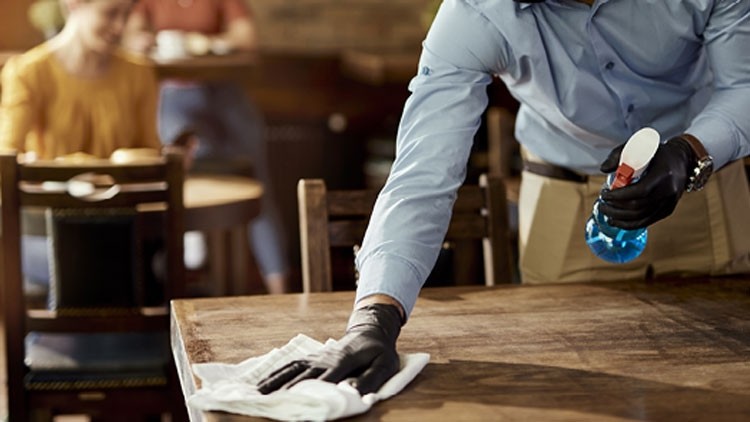Sponsored feature
Don’t take the risk – why using low quality hand sanitiser can harm your business

Since the outbreak of Covid-19 there has been more demand for hand sanitiser than ever from the hospitality sector. As lockdown eased, more and more precautions were put in place to try and keep hotels, restaurants, pubs and bars open.
One of these precautions is that hospitality settings have sanitiser readily available for use throughout the establishment. Not only is this important to protect workers and customers against viruses including Covid-19, it also helps to instil a sense of trust that hospitality owners are taking hygiene seriously in the wake of the pandemic.
Those who provide a safe environment in which people can eat and drink are more likely to get repeat service, as in these uncertain times customers will use this criteria to make choices on which venues to visit.
Not only does provision of high-quality hand sanitiser support the hygiene reputation of an establishment, it is also crucial in order to ensure that viruses don’t spread and force closures. Restaurants, pubs, bars and hotels, like any public environment, have many germ hotspots such as door handles, bathrooms, card machines, plates and cutlery. If people are not able to sanitise regularly, bacteria and viruses could easily spread.
So what are the distinctions of a high-quality sanitiser for the hospitality industry and what should you look for when sourcing a supplier?
Tough against bacteria
Being aware of the alcohol content of hand sanitiser is essential as this tells you whether the sanitiser is effective at killing viruses that could be transmitted through hands and surfaces.
If a hand sanitiser has less than 70% alcohol, it will not be effective at killing viruses that could be on hands, and therefore could result in a preventable outbreak of a virus or disease in your establishment.
Another key factor to note is whether a sanitiser has gone through the proper testing. Many imported products and products that are new to the market could have questionable quality. Where possible, it is best to request proof that a product has been tested at least according to EN 1276 and EN 1500.
Products that have also been tested according to EN 14476 and EN 13727 are suitable for use in medical and contaminated areas hence will also be suitable for hospitality sector.
Viscosity
When customers enter a hotel, restaurant, pub or bar, they should be required to sanitise their hands. If the sanitiser is too liquid in consistency, it can drip off of hands and onto clothes or the floor creating a hazard. This is an unpleasant experience for the customer and creates extra work for staff.
Another issue to look out for with sanitiser viscosity is whether it leaves hands feeling sticky once sanitiser has been applied. This, again, will put customers off using sanitiser provided throughout the building and could result in the unnecessary transfer of bacteria.
Smell
Some sanitisers are not created with customer experience in mind, meaning that they can have a pungent alcohol smell which would be off putting to anyone about to have a meal. Alternatively, sanitiser can smell strongly of chemicals, which again, does not create a good customer experience.
Try to opt for sanitisers that have moisturising products included such as Aloe Vera which will soothe hands and ensure that chemical smells are not off putting to customers who are just about to tuck into a delicious meal.
Extra precautions
Another way to give customers a good experience when entering your establishment is to ensure that sanitiser dispensers don’t get messy or sticky.
It is advisable, if possible, to use a hands-free dispenser, such as one that is foot operated. This will ensure that sanitiser pumps don’t become contaminated with everyone using them before their hands are sanitised.
While it can be tempting to buy cheaper quality sanitiser to ‘tick a box’, it will not do your business any favours. Selecting a high-quality sanitiser that gives customers a good experience will help to ensure they return to your business. Having good sanitiser available will also ensure that your staff are protected and can continue to work, rather than quickly becoming ill given the colder months bring colds and flu as well as the risk of Covid-19.
Carefully monitoring and researching products before purchase is essential. Looking out for the inclusions above, and ideally a sanitiser which advertises itself as hospital-grade, can help ensure your business and your employees are protected, to help eliminate the spread of Covid-19 and other viruses.










